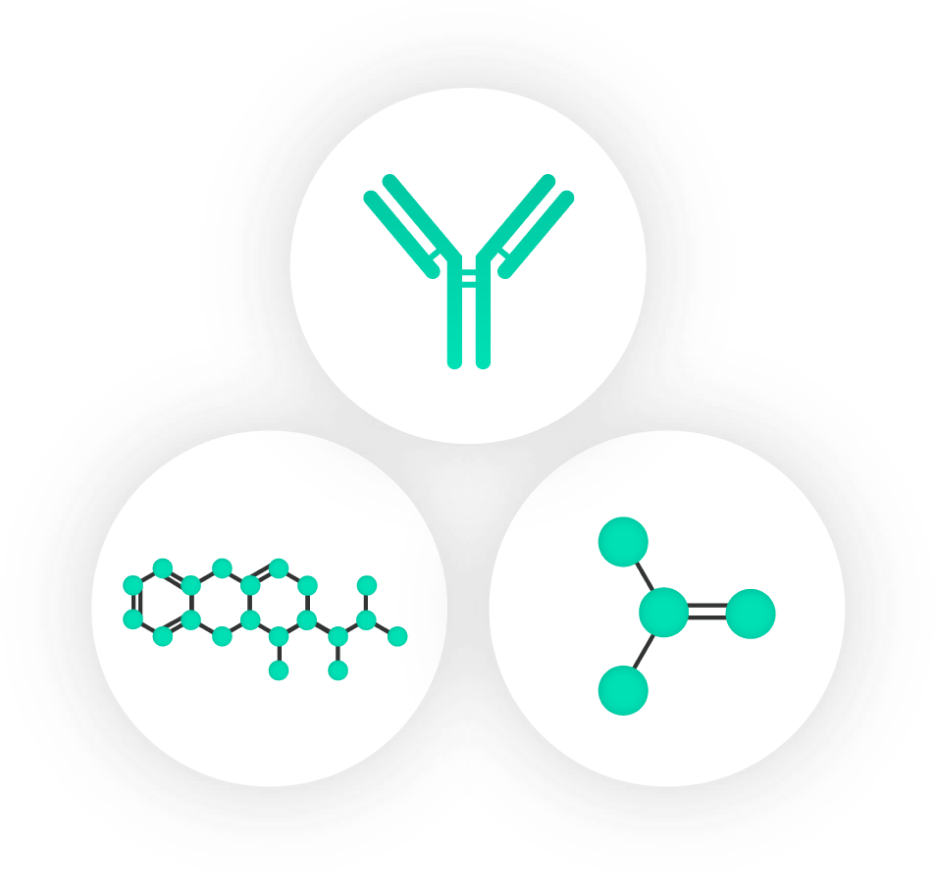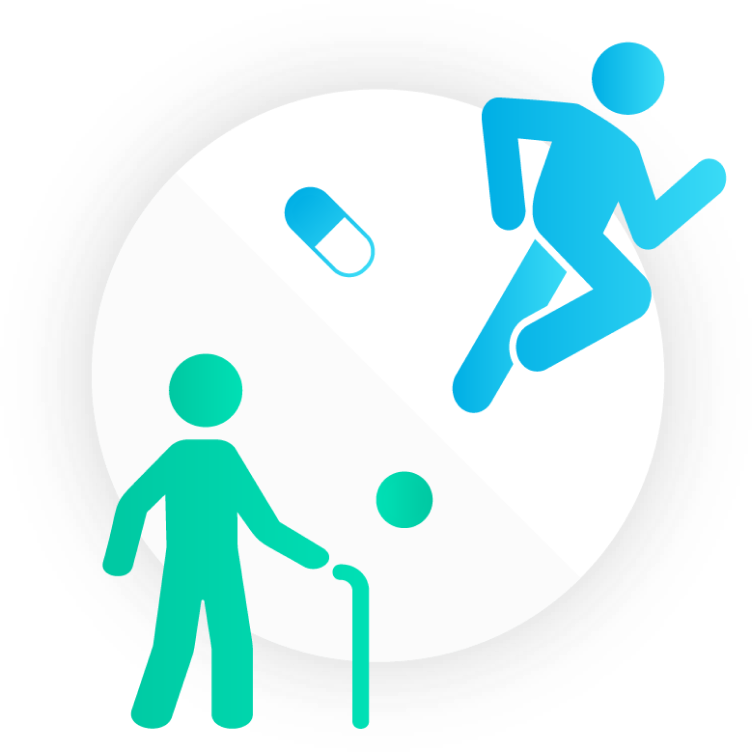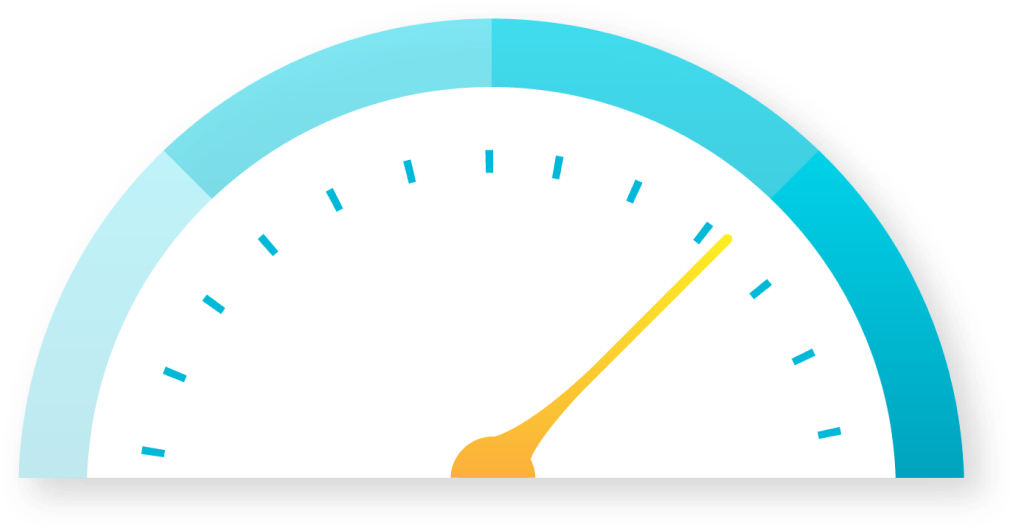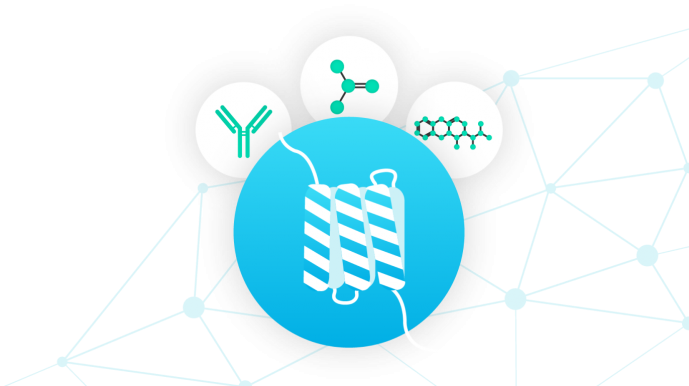Systems Biology accelerates GPCR drug candidate design by mimicking drug actions in vitro and in vivo
Key Advantages


Proprietary modeling
We build our proprietary systems biology models with our own experimental data, so our models are adaptable to specific projects.
Full ligand range
We model the entire ligand range for GPCRs – from peptides to antibodies to small molecules – and cover everything from full/partial agonists, antagonists to orthosteric and allosteric ligands. We perform all our assays using unlabeled ligands, thereby excluding labeling artefacts.


Better prediction of in vivo effects
Faster hit-to-lead time
By combining traditional and computational
pharmacology to identify the most promising ligands, we can decrease hit-to-lead time by up to 75%.
Key Advantages

Proprietary modeling
We build our proprietary systems biology models with our own experimental data, so our models are adaptable to specific projects.

Full ligand range
We model the entire ligand range for GPCRs – from peptides to antibodies to small molecules – and cover everything from full/partial agonists, antagonists to orthosteric and allosteric ligands. We perform all our assays using unlabeled ligands, thereby excluding labeling artefacts.

Better prediction of in vivo effects
By honing in on promising compounds in an early stage, you can get a sense of which drugs to pursue for in vivo
testing, leading to better outcomes, faster.

Faster hit-to-lead time
By combining traditional and computational pharmacology to identify the most promising ligands,
we can decrease hit-to-lead time by up to 75%.
How It Works
We create an in-house data set with your test compounds on your target GPCR. We analyze these data with our custom-designed systems biology model to help you identify the most promising drug candidates.
